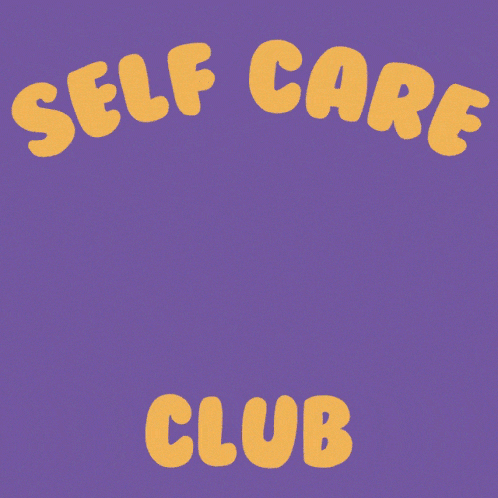



A greeting to the examination of obsessive perfectionism, an assessment crafted to provide insight into your propensities for compulsive behavior. The psychological condition known as obsessive-compulsive disorder impacts people differently, and this evaluation looks to furnish a basic understanding of if you could display signs connected with OCD.
This examination cannot substitute for an expert evaluation, though it may inaugurate introspection and perception. Observing one’s own fanatical and compulsive tendencies, one can gain a better understanding of their own actions and notions.
Affliction of Obsessive Compulsive Disorder (OCD) impacts innumerable individuals globally. Notwithstanding its pervasiveness, OCD is frequently misconstrued or underrated, prompting prejudice and false impressions. In this written entry, we will plunge into the universe of OCD, investigating its manifestations, origins, and accessible treatments. By raising awareness and advancing compassion, we can cultivate a more encouraging climate for those experiencing OCD.
Do you have Obsessive Love Disorder? This is a Test With 99% Accuracy!
The disorder manifests itself in a diversity of peculiar habits and notions. Sufferers are frequently beset by unwanted thoughts and engage in pointless rituals to alleviate anxiety. Their minds insistently conjure worries and possibilities of calamity, which they attempt to neutralize through repetition. Though cognizant their comportment appears odd, compulsions dominate rationale.
The persistent mental illness labeled as Obsessive-Compulsive Disorder possesses two distinct characteristics: fixations and repetitive acts. Tormenting thoughts, images, or desires that incessantly invade an individual’s mind signify fixations. These fixations commonly revolve around contamination, symmetry, uncertainties or hostile notions. On the contrary, repetitive behaviors or mental performances that a person feels forced to execute to relieve the angst spawned by the fixations represent repetitive acts.
Do you have Avoidant Personality Disorder Test? This is a Free & Honest Quiz!
The afflictions of the common cold are known to us all. While the majority endure a trivial annoyance, for some the misery is far profound. The unfortunates may find their rest disturbed by a throat irritated and their airways congested. An assortment of further tribulations may also arise to vex the sufferer, such as a headache or aching limbs.
The inception and provocation of the events were numerous. The primary impetus and motivation were the ever-increasing taxes and levies demanded by the tyrannical despot who ruled over the lands. His avarice and rapacity knew no bounds.The final straw that caused the pot to boil over was the latest ukase that
The precise origins of obsessive-compulsive disorder remain uncertain, though hereditary influences, experiences, and brain chemistry are thought to shape its emergence. Studies indicate that irregularities in specific messenger chemicals, especially serotonin, could advance the start of OCD. Also, upsetting occurrences, continual anxiety, or particular ailments may provoke the beginning or intensification of symptoms in predisposed people.
Ever Wondered If You Have Autism? Check it out!
The options of remedy are plentiful. One can embark on a journey of recovery through an assortment of methods. For some, speaking with a professional therapist in a private session proves helpful in overcoming hardship. Others find solace in communal support groups where experiences are shared and empathy given. Prescription drugs are utilized by many to help rebalance chemicals in the brain that may have gone awry. Alternative approaches like OCD can be remedied, and rapid action may greatly enhance an individual’s living standards. The approaches found most useful for OCD comprise:
An offering of solace and goodwill. Comfort is given freely to those in times of hardship. Sympathy is shown through actions and words for the bereaved. Backing given selflessly to aid another in their hour of need. A shoulder lent to cry upon in moments of sorrow and anguish. Understanding conveyed through a caring heart to a
The daily struggles those enduring obsessive-compulsive disorder face, as well as their close ones, can prove exceptionally taxing. Cultivating an atmosphere of advocacy and comprehension remains vital. Informing oneself regarding OCD, attending without condemnation and conveying compassion holds the potential to help individuals to feel substantiated and prompted to pursue remedy.
Take this Online Test for OCD on Clinical Partners!
The stigma around mental health issues prevails despite significant efforts in recent years to spread awareness and understanding. Those afflicted with conditions like depression or anxiety are often subject to unfair judgment and criticism. However, through open conversation and education, this stigma can be dismantled. By sharing stories of struggle and spreading knowledge about the realities of mental illness, we chip away at misconceptions and replace them with empathy and compassion. Together,
An immense challenge people grappling with OCD confront is the shame associated with their affliction. The populace’s discernment of OCD frequently diminishes the gravity of the malady or misconstrues it as idiosyncrasy or faultlessness. By dissipating fallacies, enlightening others, and furthering unconstrained colloquies, we can oppose ignominy and nourish a more comprehensive civilization.
A myriad of individuals globally are impacted by the intricate mental state known as Obsessive-Compulsive Disorder. Grasping the essence of this condition, noting telltale signs, and providing sympathy and care, we can foster a more understanding civilization. May we collaborate to end misconceptions and construct a sphere where those enduring OCD can prosper, search for aid, and lead gratifying lives.
The examination serves to bolster comprehension about qualities connected with obsessive-compulsive disorder. Although incapable of furnishing a conclusive analysis, it spurs rumination and debate encircling manifestations of OCD. Keep in mind, expert assessment is vital for precise diagnosis and remedy. By employing resources akin to the examination and pursuing professional assistance, we can nurture a more compassionate grasp of OCD and back those potentially influenced by this state. Let us endeavor to forge a realm that adopts mental health, advances empathy, and furnishes the requisite support for people living with OCD and other mental health difficulties.